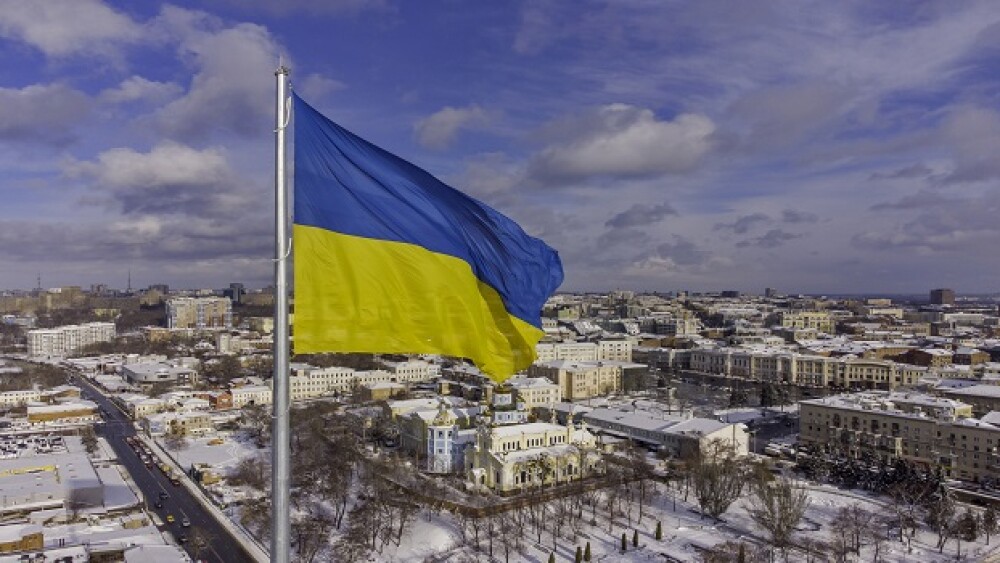The Russian invasion of Ukraine has hampered Ukrainian research to develop new treatments for infection from the SARS-CoV-2 virus and increased the risk of spreading virulent pathogens.
Courtesy of sandsun/Getty Images
The Russian invasion of Ukraine has not only created a climate where COVID-19 infection can quickly spread as thousands of people shelter together in bunkers to avoid artillery, it has also hampered Ukrainian research to develop new treatments for infection from the SARS-CoV-2 virus.
Hours ahead of Russia’s military crossing into Ukraine territory, Tetiana Matviyuk, a chemist, had shipped crucial compounds related to her work to the United Kingdom in order to protect the research. Matviyuk had been part of a Ukrainian team of scientists aiming to develop a COVID treatment for use in poorer countries, Bloomberg reported. She is the principal scientist in medicinal chemistry and computer drug design at contract research group Enamine Ltd., a company that conducts a significant amount of business with organizations outside of Ukraine.
With its technology, Enamine has the ability to make approximately 22.7 billion potential new chemical combinations, according to the report. Many of those compounds are used in early drug discovery projects.
The halting of work at Enamine due to the war is expected to have a rippling impact across Europe and Asia. Bloomberg noted that the Ukraine-based company has “grown into a linchpin in the interconnected global push to find new medicines thanks to its vast library of chemical compounds and skilled scientists.”
Following the invasion, Matviyuk and her children fled to Poland while her husband has stayed in Kyiv to combat the Russians. She is hoping to relaunch the work she was conducting in Ukraine while in Poland. Some of her other colleagues are also looking to take up their own work in other areas following evacuation.
In its report, Bloomberg noted that some Enamine employees have escaped to neighboring Poland, or to Germany, the U.K. and even the U.S. Others have remained in parts of Ukraine that are not as threatened by Russian troops in hopes of continuing their work.
Not only has Enamine’s work for a COVID treatment been hampered by the invasion, but the World Health Organization is also calling for Ukraine officials to destroy high-threat pathogens that are kept in the country’s public health laboratories in order to avoid “any potential spills” that could further threaten the population, Reuters reported.
In its report, Reuters said the WHO has worked with Ukrainian public health labs for years in order to develop safety and security protocols to avoid accidental or deliberate release of the pathogens. However, biosecurity experts have said the relentless bombing of cities in Ukraine has raised the risk of those protocols being breached, should those facilities be damaged or destroyed.
Although it has widely been dismissed, Russia has put forth a misinformation campaign suggesting that the U.S. operated a bioweapon facility in Ukraine. Reuters noted that the concerns raised by the World Health Organization do not make any reference toward biowarfare. The international health agency said it seeks “the safe and secure disposal of any pathogens” found within those public health sites.





